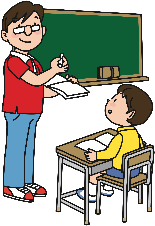Pronouns
 PRONOUNS (คำสรรพนาม)
PRONOUNS (คำสรรพนาม)
A pronoun is a word that takes the place of a noun. This is because we don’t want to keep repeating them. For example, “My sister is eight years old. She is kind”. The word sister is a noun and she is the pronoun for that word.
![]()
1: PERSONAL PRONOUNS
A: The words I, you, he, she, it, we, you, and they are subject pronouns. They come before the verb.
- Fill in the blanks (he/she/it/they) – Easy
- Fill in the blanks (he/she/it/they/we) 01


- Fill in the blanks (he/she/it/they/we) 02


- Fill in the blanks (he/she/it/they/we) 03


- Personal Pronouns (he/she/it/they/we) 01


- Personal Pronouns (he/she/it/they/we) 02


- Personal Pronouns (he/she/it/they/we) 03


B: The words, me, you, him, her, it, us, you, and them are object pronouns. They come after the verb/a preposition.
2: REFLEXIVE PRONOUNS
The words myself, yourself, himself, herself, itself, ourselves, yourselves and themselves are reflexive pronouns.
3: POSSESSIVE PRONOUNS
The words mine, yours, his, hers, ours and theirs are possessive pronouns.
4: DEMONSTRATIVE PRONOUNS
The words, this, that, these and those are demonstrative pronouns.
- Fill in the blanks (this/that/these/those)
- Change to Plural: This/That
- Change to Singular: These/Those
5: INTERROGATIVE PRONOUNS
The words who, whose, what, which, and whom are interrogative pronouns.

